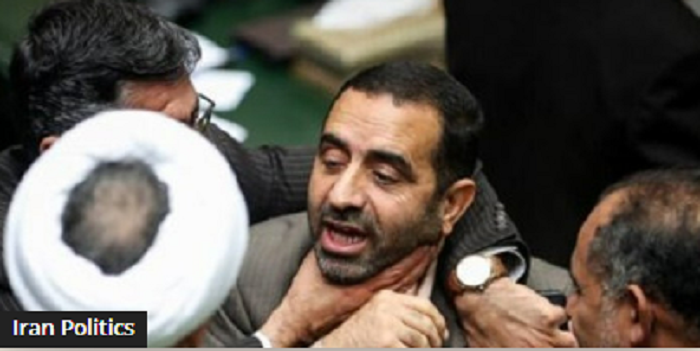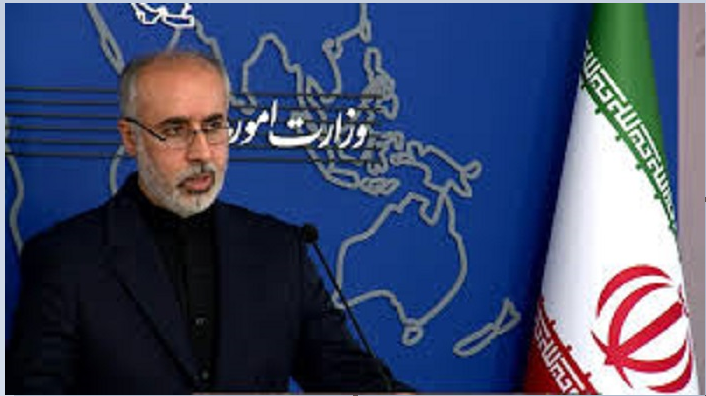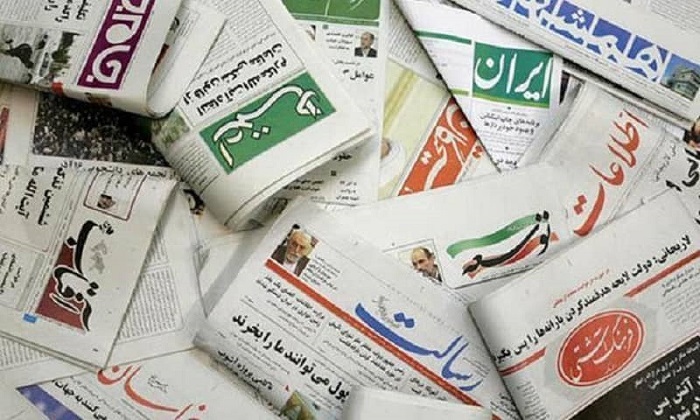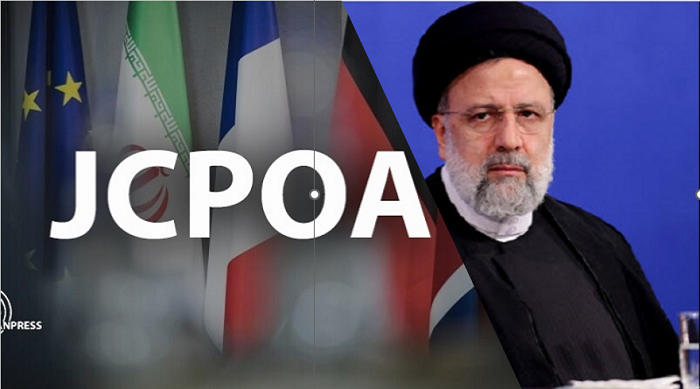
On April 29, international news agencies reported that the E3 informed Tehran of the possibility of resuming UN sanctions against Iran and threatened the activation of the snapback mechanism.
In the wake of a warning from the United Kingdom, France, and Germany (E3) to the Iranian regime concerning the potential use of the snapback mechanism under the United Nations Security Council Resolution 2231, former president Hassan Rouhani has taken the opportunity to confront the regime’s Supreme Leader Ali Khamenei and president Ebrahim Raisi over Iran’s nuclear program.
This announcement prompted swift action from Tehran, which agreed to reinstall IAEA surveillance cameras. However, the regime’s Foreign Ministry spokesperson, Nasser Kanani, simultaneously issued threats against European countries to avoid appearing submissive.

The regime’s Foreign Ministry spokesperson, Nasser Kanani, simultaneously issued threats against European countries to avoid appearing submissive.
Amid this turmoil, former President Hassan Rouhani blamed Khamenei for Iran’s increasing international isolation and socioeconomic misfortunes. He stated that despite the regime’s efforts to revive the Joint Comprehensive Plan of Action (JCPOA) and secure concessions regarding the IRGC’s withdrawal from the terrorist list, Khamenei’s actions have ultimately hindered progress.
Khamenei and Raisi’s administration have faced growing vulnerability due to popular uprisings and international censure. As a result, many former state officials are becoming more vocal in their criticism, including Rouhani.

Mehdi Nasiri, former editor-in-chief of Keyhan Daily, warned of a potential rebellion on May 5, citing rampant inflation, increasing poverty, and institutionalized corruption as contributing factors.
In an attempt to project stability and defiance, Khamenei has directed the regime to comply with Beijing’s agenda to strengthen its foothold in the Middle East. This move includes warming ties with Saudi Arabia, despite years of propaganda and hostility towards the Arab kingdom, sparking criticism from Iranian society and rival factions within the regime.
Capitalizing on this weakened position, Rouhani has highlighted Raisi’s administration’s domestic and international failures. He is particularly concerned about the E3’s warnings regarding the snapback mechanism and the potential severe consequences for Tehran if its nuclear dossier returns under the seventh Chapter of the United Nations Charter.

Capitalizing on this weakened position, Rouhani has highlighted Raisi’s administration’s domestic and international failures.
In response, factions close to Khamenei have gone on the defensive, revealing secrets about Rouhani’s administration and accusing him of surrendering national pride. State-run media outlets have also blamed Rouhani for the current situation and criticized his efforts with the JCPOA.
These developments suggest that some defeated factions are using Khamenei’s weakness as a means to gain power in the upcoming parliamentary elections. However, Khamenei has proven over the past three decades that he will do whatever it takes to maintain his hold on power, making the outcome uncertain.

